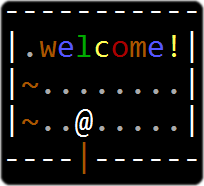User talk:Lysdexia
Welcome!
Hi, Lysdexia! Welcome, and thanks for joining NetHackWiki!
- The How to help and Style guide pages are excellent starting points.
- Special:Recentchanges is a great first stop, because you can see what other people are editing right this minute, and where you can help.
- Questions? Need help? You can ask at the Community Portal, the forum, or on the discussion page associated with each article! Just remember to sign those posts with four tildes: ~~~~. That will expand to create a signature.
You can put {{NAOplayer|NAO player account}} on your user page to link to your NAO player account. Capitalization matters.
We are really happy to have you here, and look forward to working with you!
This is an automated greeting.
-- New user message (talk) 03:57, 8 April 2019 (UTC)
Category
If you're going to change Category:SLASHTHEM to Category:SlashTHEM, please ensure the new category actually exists first. Pinkbeast (talk) 21:33, 8 January 2020 (UTC)
- There's nothing written on that page but category pages still work. Why don't you move the old one? Lysdexia (talk) 21:35, 8 January 2020 (UTC)
Language use
Hi,
I've been noticing you engaging in a lot of "corrections" directed at various users.
There are two issues with this, really, so let me address each separately:
Factual accuracy – some of the changes you are making are not actually correcting mistakes, and I'd argue actually making things harder to read. Arguably, some of your corrections change the meaning of what is being said; replacing a third-person pronoun ("they"/"their") with an indefinite pronoun ("one") when a specific entity has already been named implies the pronoun refers to a yet unspecified entity. ("They" specifically is widely accepted in everyday modern use as a gender-neutral third-person pronoun, for the record.)
To give another example, the distinction you made between "would" and "should" is not quite reflecting accepted real-world use of contemporary English.
Additionally, you've been making some suggestions about word choice that are counter-productive – to quote; "homosexual -> idemsexual; asexual -> insexual" – as the mixed-origin forms of these terms are well-established. You wouldn't call an "automobile" an "ipsemobile" or "autokineton" if you wanted people to understand what you are talking about, either.
However, having said all this, the more concerning issue to me is the tone in which you present your objections; it comes off as condescending, which is particularly jarring in cases where these objections are actually problematic per the above. I hope that isn't your intent, although it can be hard to tell from written words alone sometimes. This is a wiki, a collaborative platform. I have to ask you to at least try to approach other users politely; suggestions are welcome, dismissive comments generally aren't. Please remember we're (hopefully) all on the same page here in trying to provide the best NetHack resource we can.
—bcode talk | mail 13:57, 8 March 2020 (UTC)
- If you know the names I use on the internet and my activity you'd know I argue how wrong the world is. So populism can't support itself for propriety. issue means "gone out"; you mean problem. Sometimes there are problems when there are nonissues and no problems when there are issues. I do distinguish between indefinite and definite. Tell me where I used one correspondent to the. If a they corresponded to a, that'd be improper definiteness besides number. Gender-neutral means neuter, neither gender; the third-person singular definite neuter is it. You mean gender-communal or common; the relative pronoun already works as the third-person definite singular [or plural] common which is why I use/enforce it.
- You'd also know there is no contemporary English, as English died 1000 years ago sith Norman Conquest and everyone talks in "Einglish" now with loanwords and slang. The distinction between should and would still sometimes shows up, like in the recent edit where should is in the conditional. But contemporary usage is self-unaware and thus self-contradictory. Sometimes I use hybrid barbarisms, reluctantly, but not if their stems contradict other stems. Homo refers to the genus for humans and a- is short for ad- or ab-. Unless you know the languages the world steals its stems from, you don't know what it does wrong.
- hard:soft -> touh:easy. What kind of dismissive comments aren't welcome? (if pinging here works: User:bcode) Lysdexia (talk) 22:31, 8 March 2020 (UTC)
